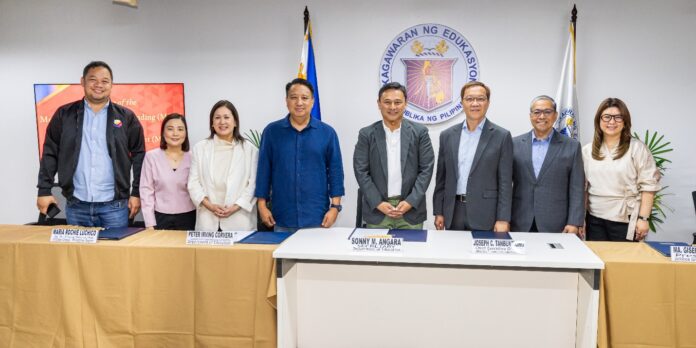The Jollibee Group has formalized an agreement with the Department of Education (DepEd) to co-develop a specialized Quick Service Restaurant (QSR) curriculum for senior high school (SHS) students under the Technical-Vocational-Livelihood (TVL) track.
The initiative is set to begin pilot implementation in the upcoming school year, combining classroom-based instruction with immersive work experience across Jollibee Group brands.
DepEd Secretary Sonny Angara hailed the move as a timely response to industry shifts amid AI and technological disruptions. “This collaboration gives our learners not only the right skills but also the resilience to thrive,” Angara said, noting that the partnership exemplifies how public-private collaboration can make education more industry-relevant.
The curriculum will train students in food preparation, customer service, sanitation, and business communication, preparing them for careers in the food service sector immediately after graduation.
Jollibee Group Philippines CEO Joseph Tanbuntiong emphasized the program’s role in bridging classroom learning with career opportunities, calling each participating school a “Joy Learning Center” where hope and opportunity meet.
Alongside the curriculum, the Jollibee Group Foundation (JGF) committed to building 50 classrooms nationwide by 2028, in celebration of the company’s 50th anniversary.
The first six classrooms will be built in Mindoro, Cebu, and Sarangani starting 2026.
JGF president Gisela Tiongson described the initiative as part of a broader push to provide both educational programs and infrastructure under the company’s Joy of Learning program, which also includes school feeding efforts through its Busog, Lusog, Talino (BLT) Central Kitchen model.
The partnership underscores a growing policy shift toward integrated learning models that align education with labor market needs, while addressing critical infrastructure gaps in the Philippine public school system.







